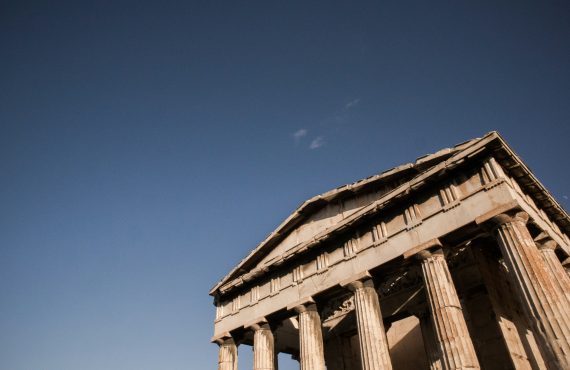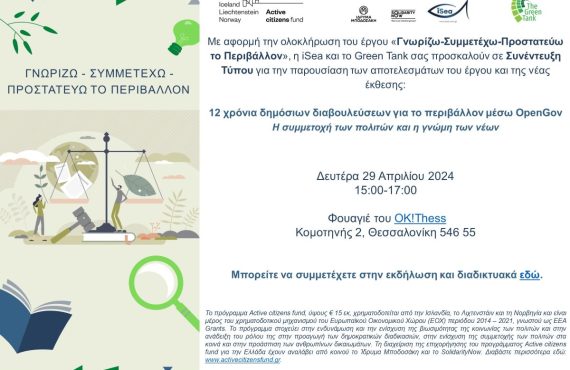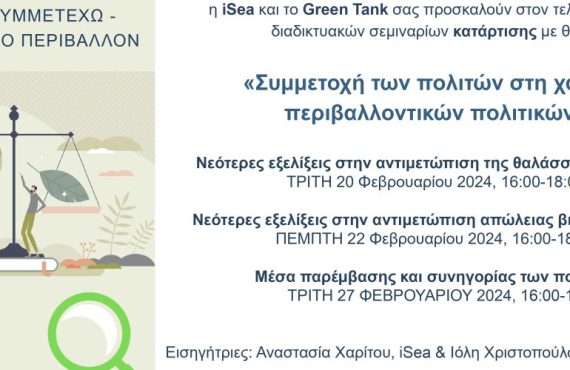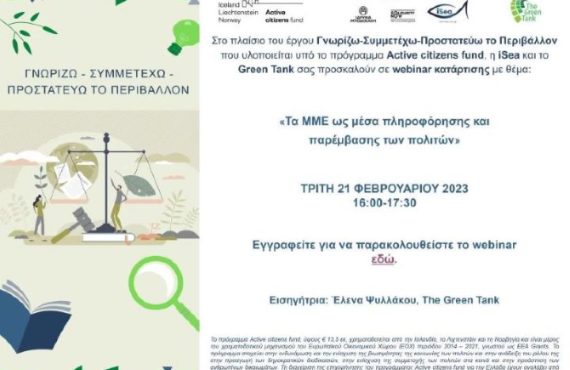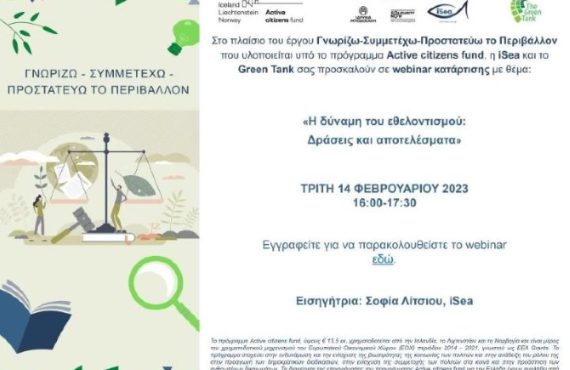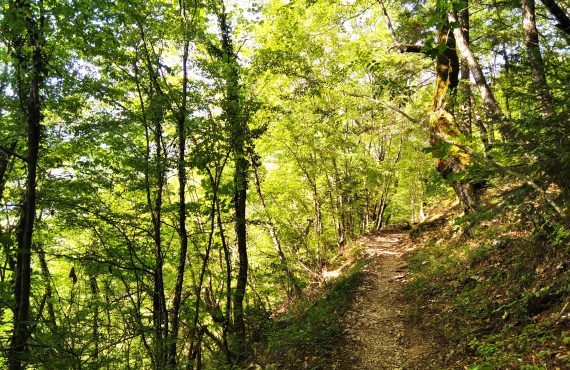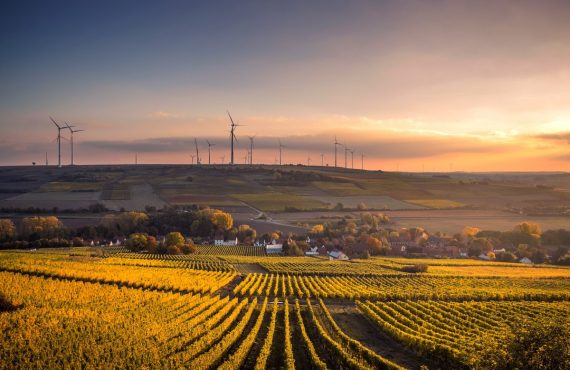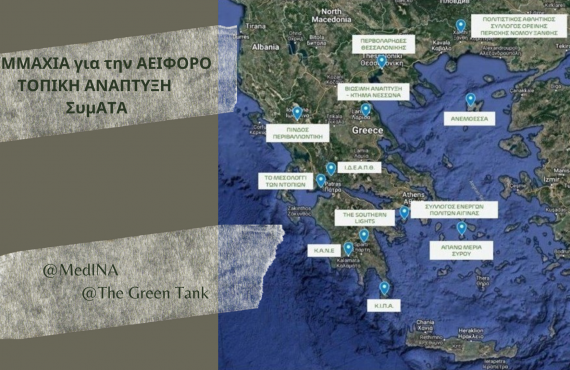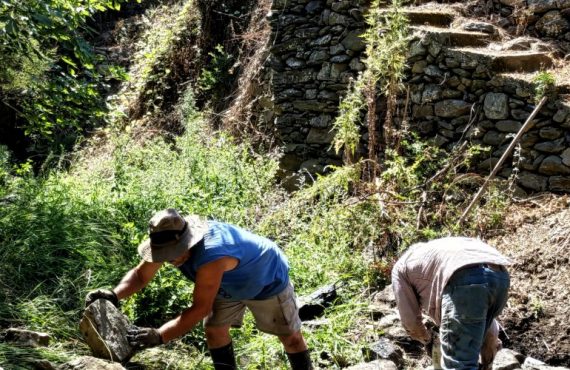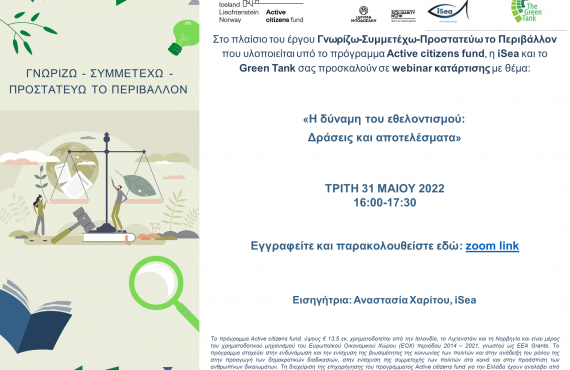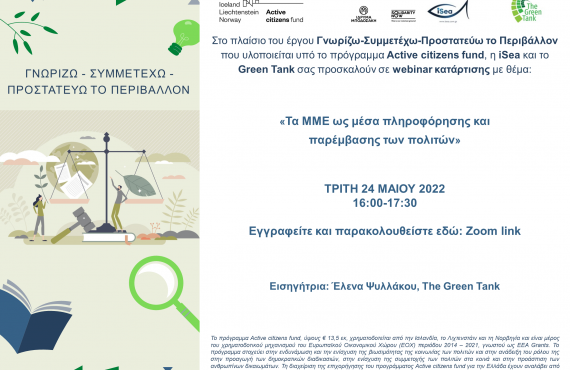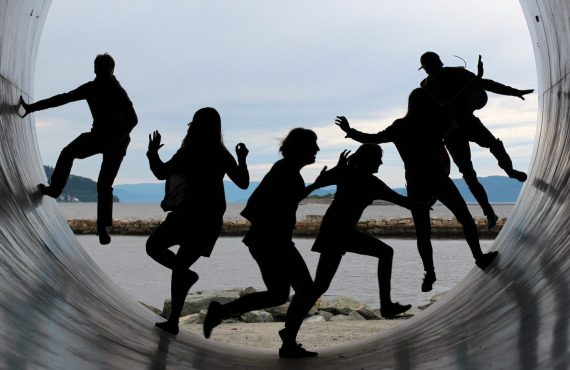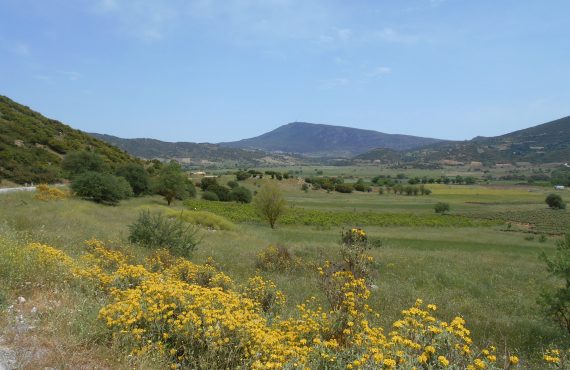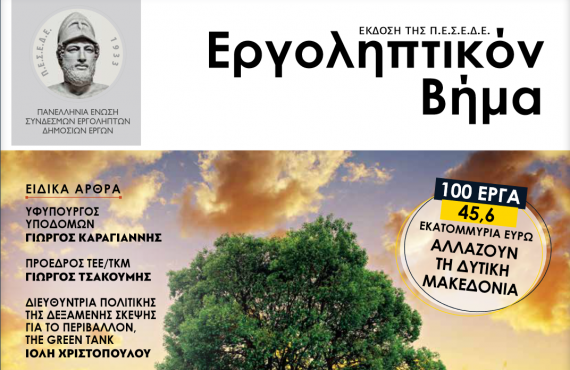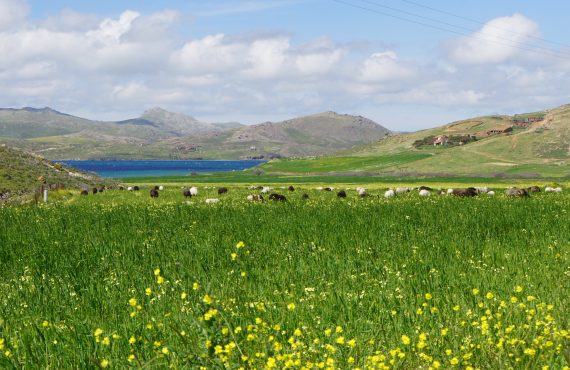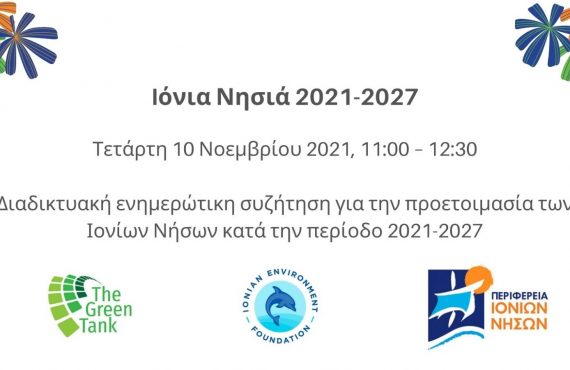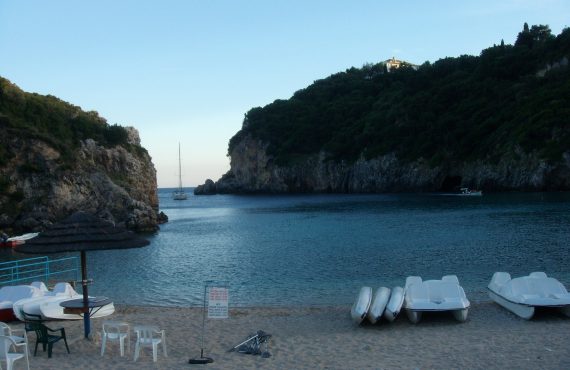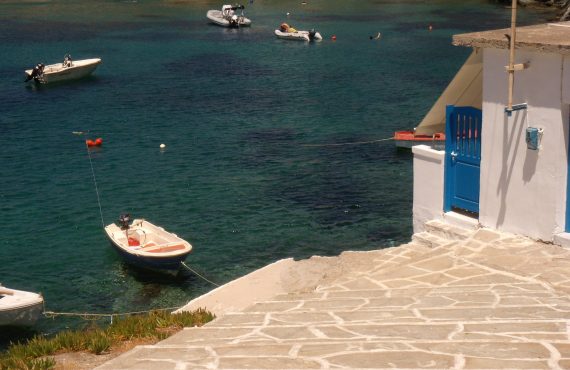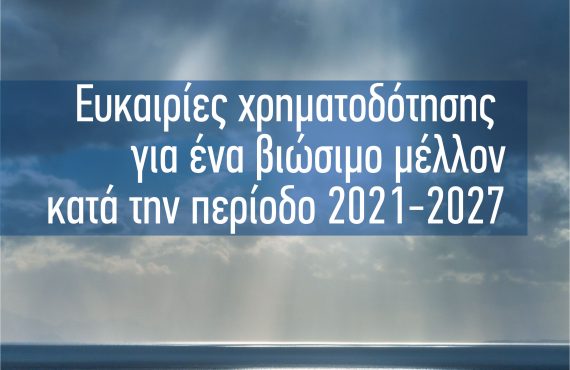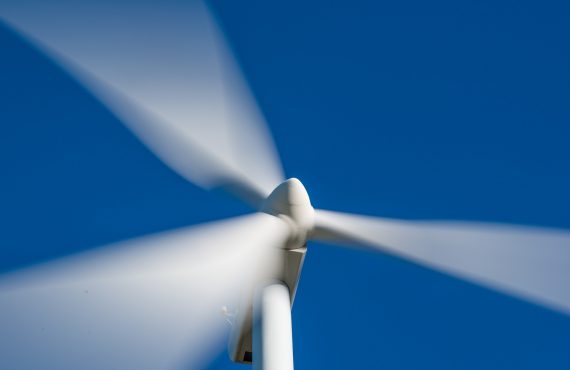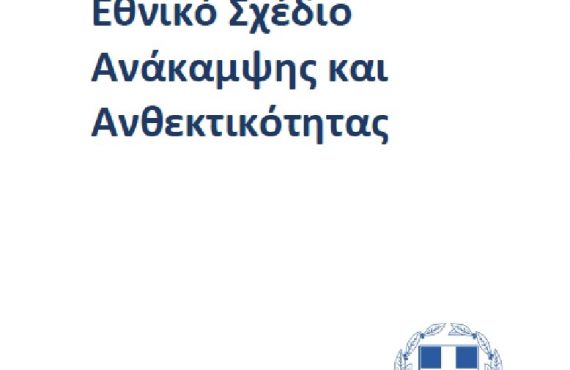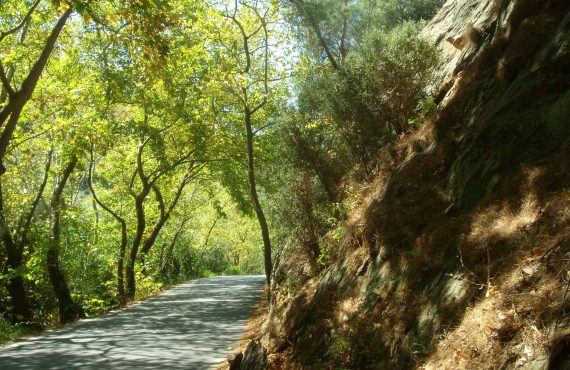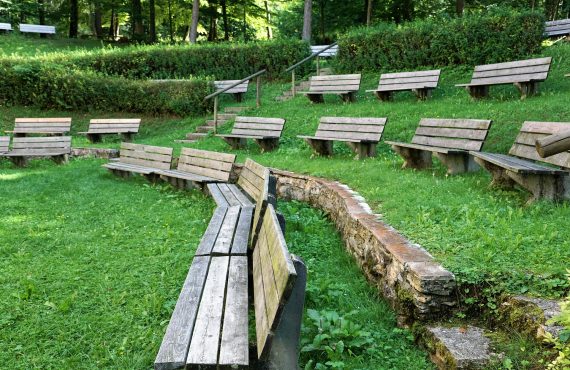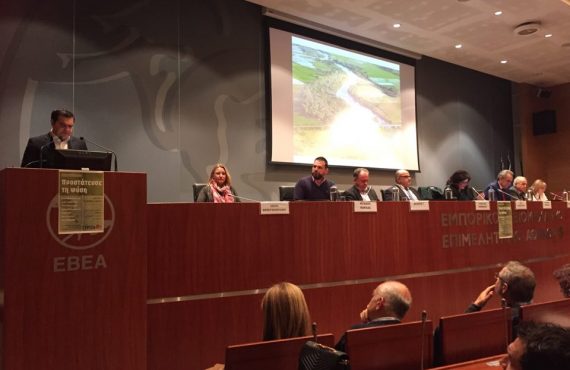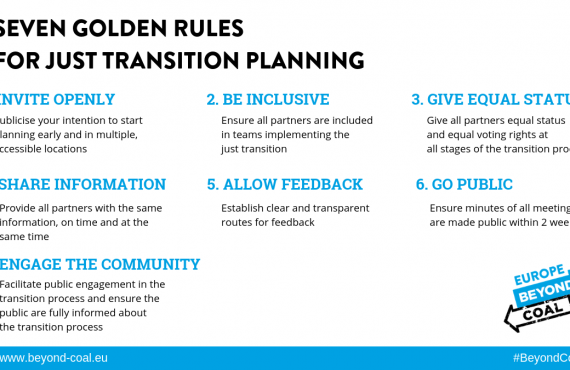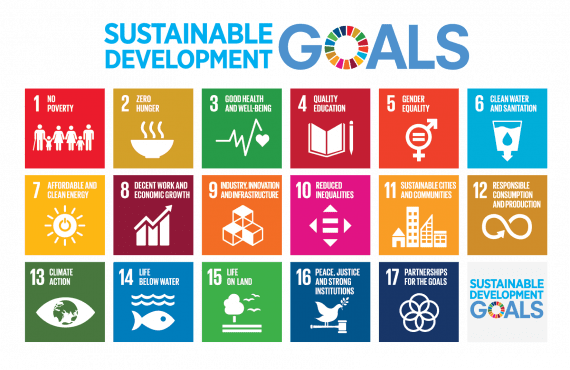Since 2019, the European Green Deal has been changing the map of the EU’s economic and development strategy towards a green and fair transformation, marking important initiatives and achievements along the way. Its key pillars include protecting, preserving and enhancing the EU’s natural capital, decoupling economic growth from resource use and fostering an inclusive and just transition. In view of the upcoming European Elections, a pertinent question arises: will the emerging challenges reduce the Green Deal’s durability or will it hold its ground as a central policy of the EU.
In this spirit, the online discussion on “European elections 2024: 5 years of the European Green Deal & the expected critical environmental challenges for the next term”, co-organised by iSea and Green Tank with the participation of representatives of the European Commission Representation in Greece, was successfully concluded, as part of the project “Learn-Participate-Protect the Environment”.
The discussion started with short presentations by Anastasia Haritou, iSea, who touched upon the identity and role of the European Commission Representation in Greece, and Ioli Christopoulou, The Green Tank, who talked about the history and the main pillars of the European Green Agreement. Notably, she stressed that the European Green Deal was the result of scientific evidence and citizens’ mobilizations calling for climate action.
On behalf of the European Commission Representation, Eleni Palaeologou, Deputy Head and Evangelia Georgitsis, Communication Manager and Coordinator of Europe Direct Centres, answered questions on the key achievements of the Green Deal in addressing the climate crisis, biodiversity loss and marine plastic pollution in the 2019-2024 period.
They also pointed out how the European Green Deal, in its first phase of implementation, remained resilient in the face of major crises such as the COVID-19 pandemic, the energy crisis and Russia’s war against Ukraine. However, with the scope for effectively responding to global environmental challenges narrowing, the agenda in the coming years will have to include the implementation of the major legislative changes that have emerged in previous years and the promotion of additional measures and policies.
Furthermore, the conversation focused on the recent developments around the Nature Restoration Law, which has revealed disagreements, marginal alliances and divergences among the EU institutions. In particular, it was mentioned that despite the fact that there was political agreement with the final adoption of NRL by the European Parliament, against the strong objections of the European People’s Party, the future of the Law is currently uncertain, because of the change of position of one Member State. On this occasion, questions on the decision-making process and consultation in European policymaking were answered.
Finally, particular emphasis was placed on the importance of citizens’ mobilisation for policymaking and on the tools that promote and ensure that the European institutions consult all stakeholders. In this context, it was stressed that the result of the June elections will largely determine the composition of the European Parliament and subsequently the European Commission, as well as the priorities to be set. It is therefore of great value for citizens to participate in the forthcoming European Elections so that they can play an active role in the decisions to be taken on the environment and on the issues of concern to them.
After the questions posed by the organisers, the discussion continued with queries from the audience on issues such as the just transition, development indicators, fisheries policy and citizen participation.
The online discussion took place on 08 April 2024. You can watch it (in Greek) here.
The project “Learn-Participate-Protect the environment” is implemented by iSea, in partnership with the Green Tank, under the Active Citizens Fund programme.
You can learn more about the project (in Greek) here.
* The Active citizens fund in Greece is supported through a €13,5m grant from Iceland, Liechtenstein and Norway as part of the EEA Grants 2014 – 2021. The programme aims to develop the sustainability and capacity of the civil society sector in Greece, and to strengthen its role in promoting and safeguarding democratic procedures, active citizenship and human rights. The Fund Operator for the Active citizens fund in Greece is Bodossaki Foundation in consortium with SolidarityNow.




